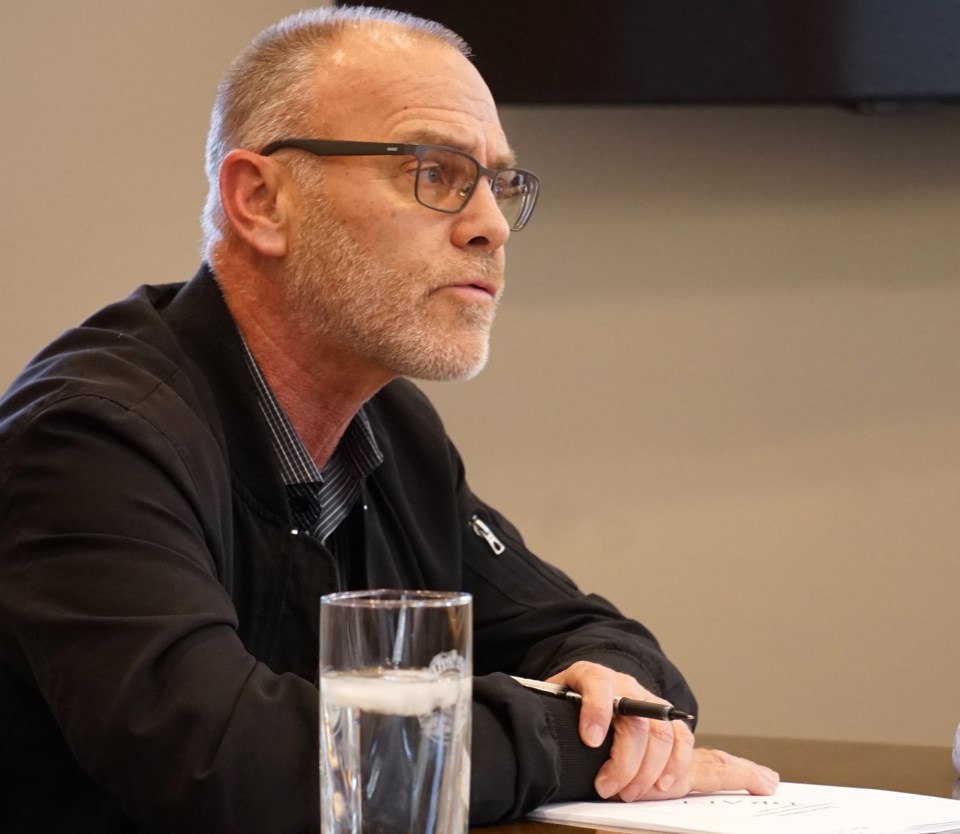ATHABASCA — The Town of Athabasca ended 2024 with a small cash surplus under $500,000, but was left with a total operational deficit on the books of more than $700,000 after factoring in asset depreciation and a large administration write-off.
Scott Mockford with Doyle and Company Chartered Professional Accountants presented councillors with a near-final draft of the 2024 audited financial statements April 1. And while he noted the books themselves were in good shape, the operational balance at the end of 2024 took a hit.
“You’ve got a really good set of records and organization, so it’s a treat doing the audit,” said Mockford. “It allows us to come in here and just do an audit, and we aren’t coming in here finding all kinds of mistakes and making lots of changes and corrections.”
The town’s operational deficit reached $708,000 in 2024, which Mockford described as “not necessarily ideal.”
“But $350,000 of it is that write-off. You also have to realize in here is about $1.5 million of depreciation; equipment is an accounting entry, not a cash item, which is the reason why we end up with a deficit here but we still have an unrestricted surplus.”
Earlier this year, councillors agreed to waive $350,000 owing in unpaid taxes on the former site of the Grand Union Hotel after the 100-year-old building burned down in a July 23, 2024 fire.
According to Mockford and chief financial officer Jeff Dalley, the total amount owing on the Union site totalled over $500,000 prior to the waiver, and when asked if the remainder owing is believed to be reasonably recoverable, Mayor Rob Balay replied, “We’ll see.”
Despite the operational deficit, the town did end the year in the black with an unrestricted surplus of over $478,000. Councillors opted to split the extra revenue received into the town’s three major reserves; general capital, general operating, and general water infrastructure.
Coun. Ida Edwards voiced her support for putting a portion of the surplus towards both the community enhancement and recreation fund in the case capital funds for the Nancy Appleby Theatre are no longer covered under the Multiplex budget, as well as the Old Brick School reserve.
“I really do respect the needs with our water and our capital basic expenses that come every day, but we also have some facilities that are aging and they do need love and care and two of those are landmarks in our community.”
Balay countered that addressing the financial leaks caused by unplanned water main repairs would do more to stabilize the town’s spending, and decisions on theatre funding between the town and county through the multiplex are still ongoing.
Coun. Jon LeMessurier also had a suggestion for the surplus, asking why the extra cash couldn’t be used to stave off potential tax increases for residents in 2025.
“What we could do is say we’re going to lower taxes and draw from reserves,” said Balay. “But I wouldn’t suggest we do that.”
Motions to transfer $218,663 to the general operating reserve, $140,000 to the general capital reserve, and $120,000 to the general water infrastructure reserve were all passed 6-0, with Coun. Edie Yuill absent.
The numbers
The town’s financial assets grew in 2024, up to $7.3 million from $6.3 million in 2023. Cash and temporary investments grew by $1.2 million over the year, but receivables in the form of taxes did show a dip due to the write-off of unpaid taxes for the former Union lot.
Liabilities remained relatively steady from the year prior, with the largest changes to deferred revenue — federal and provincial grant money approved but not yet spent — and long-term liabilities with a new $1.1 million debenture signed.
Asset retirement obligation, a new cost added last year to account for asbestos abatement, did increase by almost $30,000 in 2024, which Mockford attributed to inflation adjustment.
The town’s net financial debt position — assets minus liabilities — sits at $2 million at the end of the 2024, up more than $580,000 from 2023’s $1.5 million.
Almost $1 million more in revenue was collected by the municipality than anticipated in the 2024 budget thanks to a small bump in property tax rates, but operational spending did outpace income.
The largest expenses were seen in administration thanks to the tax write off and asset depreciation, and fire services, due to costs associated with the response to the Union Hotel fire, as well as fire engine repairs.
Mockford noted the 50 per cent of the Multiplex’s expenses and revenues for 2024, not available at the time of the presentation, would change dollar amounts in the statements, but would not impact the town’s bottom line.
The town collected a total of $5.4 million in real property tax over the year, up from the $5.1 million in 2023, and $1.13 million went towards the Alberta School Foundation Fund, the Senior Foundation, and the industrial property tax.
Mockford’s audit included a breakdown of expenses for the year, which saw $2.17 million spent on salaries, wages, and benefits, $5.18 million on contracted and general services, and $216,700 spent on bank charges and interest.
In 2024, the town distributed $75,000 to local boards and agencies, and more than $200,000 to individuals and organizations in the community.



